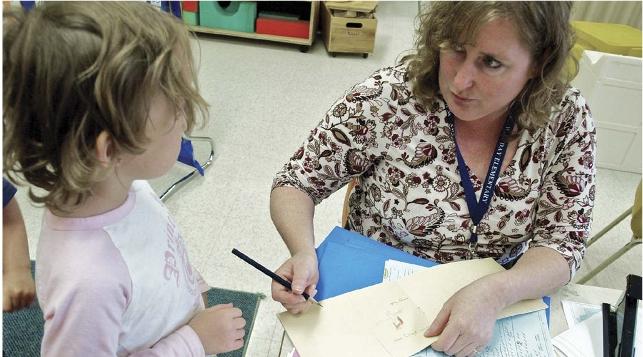
Ensuring the Ontario College of Teachers Works for You
The Ontario College of Teachers (OCT) is about to embark on an activity that occurs every three years: the election of members of the profession to serve on its governing council. The upcoming election, in March and April of 2009, will be the fifth since the inception of the College. You might think that teachers would stand up and take notice, eager to be a part of the democratic process; yet this is not the case.
When the first OCT election was held in 1997, only 32 percent of teachers voted. Things continued to deteriorate and by the fourth election in 2006 a mere 5.54 percent of the profession voted, indicating a profound loss of confidence in the College’s stewardship. It is clear that the College has not engaged members of the teaching the profession. Its members have come to regard the OCT as an adversary focused on sanctions.
There is a more significant issue at play, however. In Ontario the teaching profession achieved what might be considered professional status (using the more legal definition of the term) years before the formation of the College. The Federation of Women Teachers’ Associations of Ontario was formed in 1918 and the Ontario Public School Teachers’ Federation followed not long thereafter. These organizations represented teachers as professionals, and it was to these organizations that they turned for advocacy, support, and guidance. When the College was formed in 1997 it was seen by many teachers as unnecessary. Nevertheless, more than 10 years later it is clear that the College is not going away.
Compare teachers’ experience with that of early childhood educators. This group lobbied for years for the formation of a professional college because they wanted the professional status it would bring them. They cheered when the provincial government created the College of Early Childhood Educators in 2007. There were few in the teaching profession who cheered in 1997 when the Mike Harris government established the OCT. Ontario’s teachers were one of the few professional groups in the world to have a professional college imposed upon them. We didn’t want a college, didn’t understand the need for a college, and for the most part still do not.
Accordingly, many teachers ignore the College. To them the OCT is a magazine that comes a few times a year. It is a mandatory deduction from their paycheques in January. It is an annoyance, but one they can disregard – until one of its representatives comes calling. Then it is feared.
The reality is that the OCT exerts considerable control over teachers’ professional lives. It makes recommendations to government about legislation that governs teacher qualifications. It accredits the faculties of education, allowing them to offer teacher certification programs. It decides what additional qualification courses should be offered in Ontario and then determines the content of those courses.
The OCT is responsible for certifying all those who want to teach in Ontario. It sets the academic standards and the ethical standards for the profession. It investigates and handles complaints against teachers. The governing council decides what fee Ontario teachers will pay to OCT (recently it increased the fee by 15 percent!).
Because the College has a great deal of impact on teachers and their working lives, ETFO and the other teacher federations will endorse candidates in the upcoming election. We believe that the voices of classroom teachers should be heard and considered when the governing council makes decisions. For much of the College’s history these voices have been ignored and discounted.
When making decisions about which candidates to endorse, ETFO will consider the candidates’
- commitment to ensuring that the OCT does not expand beyond its legislated mandate
- commitment to the rights of teachers and teacher organizations
- commitment to maintaining the fee at its current level or lower
- commitment to fairness and equity
- ability to deal with members and issues with compassion and maturityability to weigh options, see the consequences of decisions, and work toward solutions
- willingness to be a strong advocate for teachers
- ability to ask questions and make tough decisions
- commitment to working with other councillors
- ability to meet the time demands
- commitment to devoting the time and energy required
- knowledge about the political environment and how it affects education
- knowledge about the roles of major stakeholders
- experience in local and/or provincial teacher organizations
- intention to be an active teacher for at least three more years.
After weighing this information carefully, ETFO will decide which candidates it will endorse – a difficult but important task. It will communicate this information to the membership.
ETFO recognizes the important role elected councillors will assume and wants a council that will make decisions that are in the best interest of the profession. We want a College that understands and is respectful of the unique mandate of teacher federations. We want a College that appreciates it is funded by the teachers of Ontario and as such acts as an ever watchful steward of the budget.
This is not always the College we have seen during the past 11 years. We hope that this spring Ontario teachers will elect councillors who will work toward making the Ontario College of Teachers a body that truly works for them.